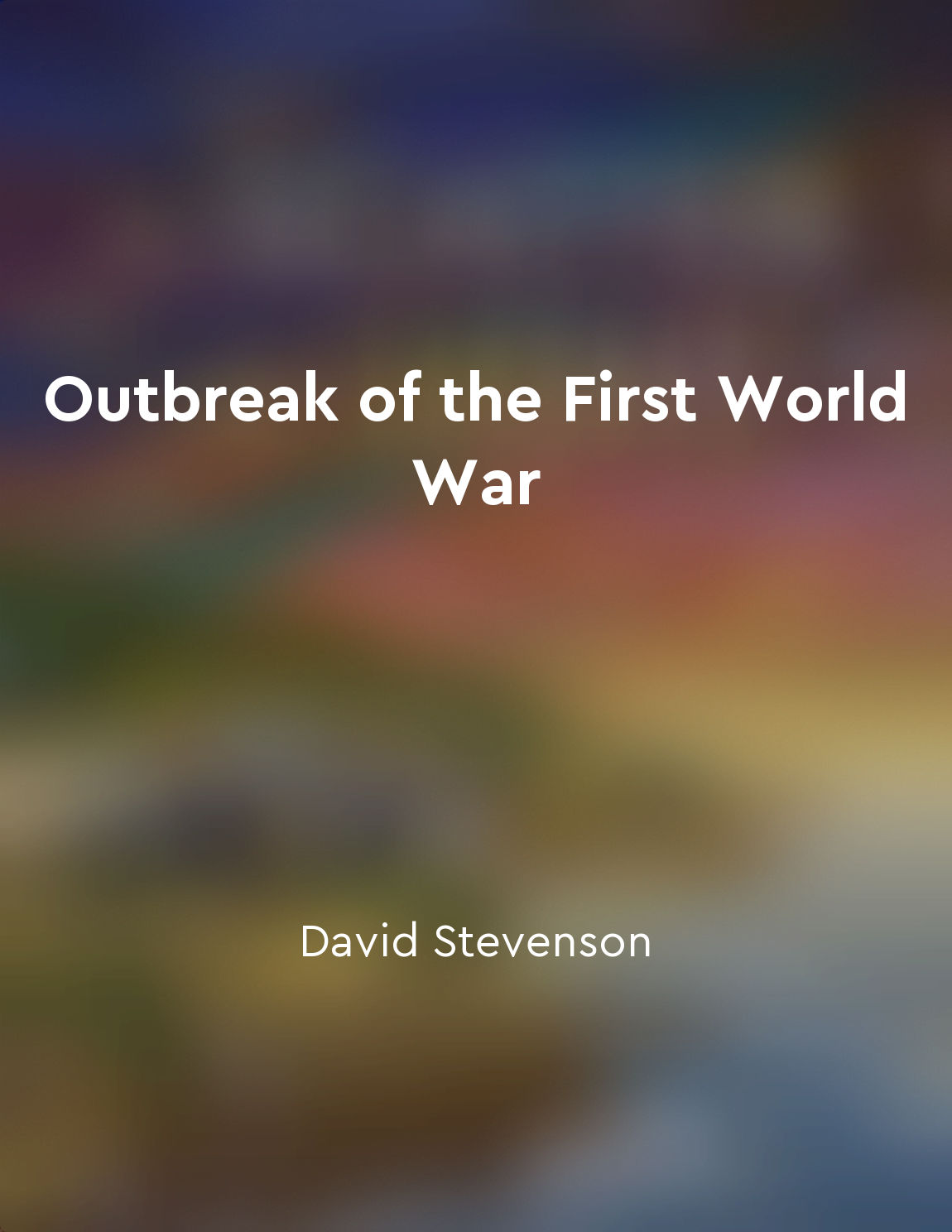Assassination of Archduke Ferdinand from "summary" of Outbreak of the First World War by David Stevenson
On June 28, 1914, Archduke Franz Ferdinand of Austria was assassinated in Sarajevo, the capital of Bosnia. The archduke, heir to the Austro-Hungarian throne, and his wife, Sophie, were shot dead by Gavrilo Princip, a Bosnian Serb nationalist. The assassination was a significant event that ultimately led to the outbreak of the First World War. The assassination itself was a result of complex political tensions and rivalries in the Balkans at the time. Bosnia was a contested region, claimed by both Austria-Hungary and Serbia. Serbian nationalists, who sought to create a Greater Serbia, viewed the archduke as a symbol of Austrian oppression and sought to eliminate him. The assassination of Archduke Ferdinand was not initially seen as a trigger for war. Austria-Hungary saw the event as an opportunity to assert its authority in the Balkans and issued a list of demands to Serbia. Known as the July Ultimatum, these demands were intention...Similar Posts

Innovation drove economic growth
In the course of centuries, mankind has made many inventions. Every new machine that it has invented has made the work of men e...
The Battle of Tannenberg was a significant victory for the Germans
Barbara W. Tuchman's "The Guns of August" vividly captures the significance of the Battle of Tannenberg as a pivotal moment in ...

Globalization has amplified the effects of war
Globalization, far from being a recent phenomenon, has been a force shaping the world for centuries. Indeed, the interconnected...
The war had farreaching economic consequences
The First World War, with its unprecedented scale and intensity, had profound economic implications that extended far beyond th...
Armistice negotiations set stage for postwar settlement
The armistice negotiations that took place towards the end of the First World War were not just about bringing an end to the fi...

Involvement of colonies and territories
The involvement of colonies and territories played a significant role in the outbreak of the First World War. The European powe...
Propaganda shapes perceptions of the war
Propaganda was a powerful tool used by governments during the First World War to shape public perceptions of the conflict. Thro...
The alliance between Germany, Italy, and Japan proved to be a formidable force
The alliance between Germany, Italy, and Japan was a formidable force that shaped the course of World War II. These three power...
